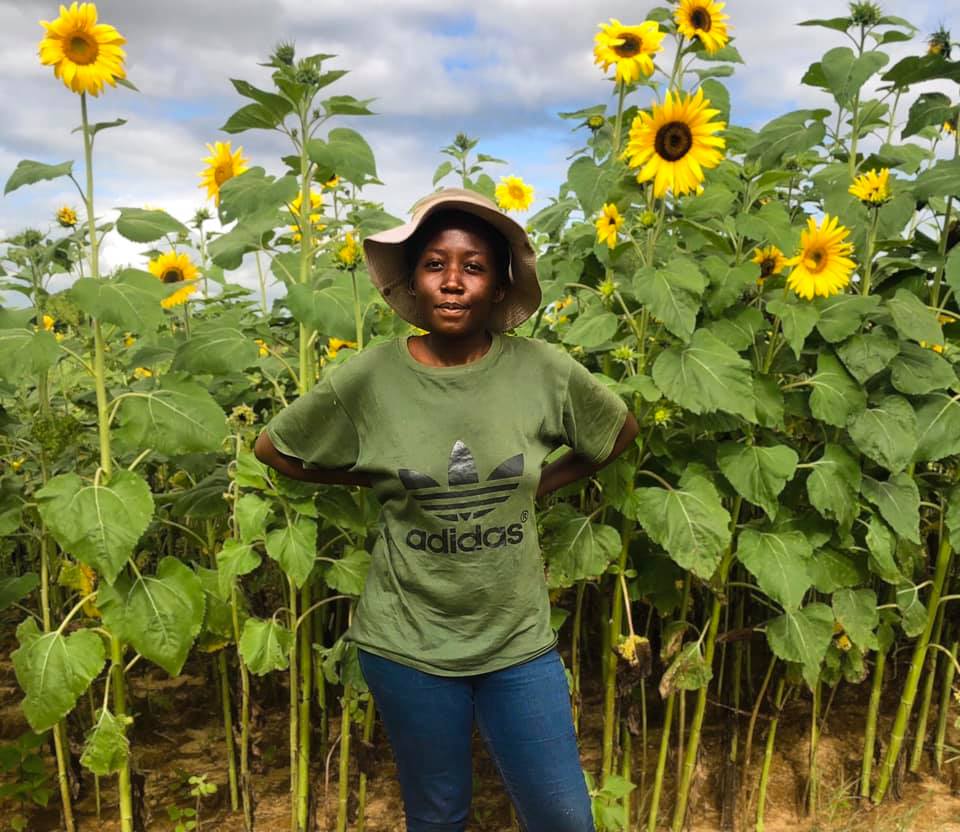
AT first glance, one would not even easily tell this is Guy Scott’s son – as he paces around the farmyard in cargo shorts, and a hat made of reeds – but that is how simple Sebastian has chosen to lead his life.
His house has twelve different colours and brands of iron sheets on it.
All roofing sheets, windows and some of the timber were rejects or second-hand but Sebastian made good use of them to build the place he now proudly calls home.
The 43-yeard-old father of three, Nia, 17, Eva 14, and Luke 11, lives in Kafue rural on his farm.
He is an organic farmer and does almost every work on the farm by himself, despite the status destiny has attached him to or the two helpers he has.
He is a hands-on kind of person, perhaps a real-life jack of all trades.
“I did all the bricklaying, roofing, concrete, plumbing, electrical, welding, painting, plastering, fitting and whatever else myself. With brick making, we were three to make the 7,000 bricks for the house. For bricklaying I had one assistant to make mortar and hand me the bricks,” Sebastian reveals when talking about his house.
Considering that he is a son of a former Vice-President, who at one time acted as Zambia’s President, one would expect Sebastian to live the high life but he has chosen to be simple and instead lives in the remote areas of Kafue, in a place called Kasusa.
He set up base there 15 years ago when he relocated to continue with organic farming, which he started in England and Australia over 20 years ago.
Together with his wife, Holly, they are transitioning nine hectares of land with a collection of a thicket into wealth using the simplest of methods in organic farming.
Half of the land is cultivated, about 4.5 hectares, while the other part of the land is used for animal grazing.
Sebastian finds himself regularly needing to fine-tune land management strategies as he continues to learn about farming and organic crop production.
His interest in plants dates way back to his days as a child.

“I was born at Kalulushi Mine Hospital and at the age of five, we relocated to England. And after completing my school in England, I started working on organic farms. I was born and raised in a family that believed in improving and sustaining the environment for everyone’s benefit. We are all here because the environment is supporting our lives.”
“It is in England where I started reading agriculture text books on organic farming and I also worked on a number of farms in England in order to learn how to grow crops without adding fertiliser and chemicals. I attended a number of workshops and seminars until I found a way of doing this, the natural way of growing crops in a less costly way.”
After relocating back to Zambia from Australia, he continued with his organic farming when he started working at Kasisi Agricultural Training Centre.
After leaving Kasisi, he went to Kafue to settle on his farm.
One may think because of him being white and a former Vice-President’s son he would be detached from the community around him. But surprisingly, his relationship with the people in Kasusa is good.
When asked how he relates with the community, Sebastian answered: “My relationship is good. We work together, address issues and over the years we have gotten on well with everyone.”
Sebastian did his primary and secondary school in London because his father had gone back to England, where he got a job at Oxford University.
‘Seba’, as he is fondly called by villagers around his farm, is a third-born of four children (three males and a female).
But despite being a son to a man who has lived all his life in and around politics, Sebastian does bot seem keen on following his father’s footsteps.
“I have not thought of being in politics. The biggest role I can play is to help the economy grow in rural Zambia by sharing the organic knowledge with them. I think I can serve people better in my passion as an organic farmer as opposed to being in politics.
“Maybe when I am too weak to hold a hoe, then I can consider politics but for now, farming is what is on my mind, nothing else,” Sebastian said.
And the feeling of being the Vice-President’s son, how was it for Sebastian?
“It was strange being son of Vice-President. Luckily I kept a low profile and I was happy with my dad and step-mother that they got to that level. It was interesting but I made sure I continued with what I was doing, organic farming,” Sebastian said.
Each time his father visits, Sebastian said, they talk about farming.
“He is very passionate about agricultural and rural development. We discuss these issues at great length and he supports my work 100 percent,” Sebastian said.
On his nine hectares of land, Sebastian grows pumpkins, soya beans, groundnuts, pigeon peas and maize.
Sebastian uses the maize and soya beans as feed for his animals.
“We make double the money from the soya and maize by making it as feed. We have 50 pigs, 250 layers and five cows.”
“For me having come from a family where both my grand-fathers were interested in improving life around them, I find it defining in how my father has chosen his way of life. We have citrus, oranges and lemons, we have bananas. We grow 22-plus different kinds of vegetables,” he said.

